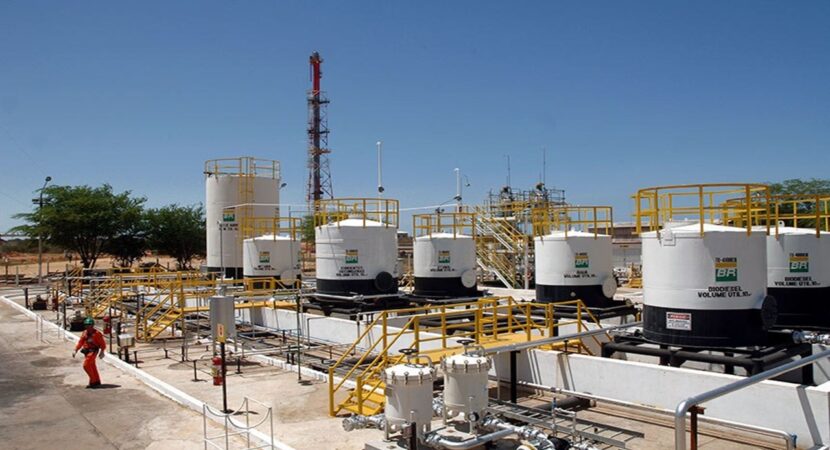
Petrobras is the main purchaser of biodiesel in the country. The impact of reducing the mandatory fuel percentage will bring a loss of BRL 2 billion in just 2 months for the state-owned company
The Brazilian government reduced the Mandatory percentage of biodiesel in diesel, from 13% to 10%, on the eve of the climate summit convened by the President of the United States, Joe Biden, with forty countries, including Brazil. The decision reduces the price of fuel at the pump and it pleases truck drivers, but on the other hand, it ignores the consequences of the decision for the country's image on the international scene, for the entire production chain and for the Brazilian GDP itself, which was sustained mainly by agribusiness in 2020.
Read also
- Faetec invites teachers, instructors, pedagogues and more, for many job openings throughout the state of RJ
- Mixing hydrogen with ethanol promises to revolutionize performance and reduce fuel consumption in flex-fuel engines
- Ethanol price soars along with gasoline; sugar and exports make biofuel more expensive
- Soybean oil price plummets after Brazil reduces biodiesel mix in diesel
Brazil is currently among the top three producers and consumers of biodiesel in the international ranking, along with the United States and Indonesia.
The gain with reduction of biodiesel in fuell at the pump was 8 cents per liter for truck drivers, but it was already compensated by the last increase in fuel carried out by Petrobras on April 16, where average prices in state-owned refineries became 2,76 reais per liter for diesel, a readjustment of 10 cents per liter.
The price of diesel is quite outdated even with the new readjustment by Petrobras. Brazilian diesel accumulates an increase of 36,3%, while oil rose 41,1% in the international scenario, in this year of 2021.
The main buyer of biodiesel in the country is Petrobras, and the impact of reducing the mandatory percentage is estimated in a reduction in the sale of the product by 300 million liters of biodiesel – around 120 Olympic swimming pools –, a loss of revenue of approximately 2 billion of reais in two months. To get an idea, four production plants are being expanded to increase production by 256 million liters per year and eight new ones are being built to produce 1,4 billion liters per year.
Reduction of biodiesel in fuel can backfire and trigger bankruptcy of companies in the sector and unemployment
The government's measure to reduce biodiesel in the fuel could impact industries that expanded their operating capacities by relying on high demand, and therefore generate unemployment, since the biodiesel production chain employs more than 1,5 million people.
About 80% of the biodiesel consumed in the country is produced from pure and recovered soybean oil, whose production stimulates the production of soybean meal, the main input in the feed chain – which, in turn, feeds poultry, fish and pigs. The consequent impact on inflation will affect society as a whole, including the sectors that today intend to benefit from the reduction of fuel at the pump. That is, the intervention may result in a backfire.
An economic opinion carried out by GO Associados, by Gesner Oliveira, former president of the Administrative Council for Economic Defense (Cade) and Sabesp, points out that the reduction could lead to the bankruptcy of companies that made investments and increased their production capacity trusting the schedule of the National Energy Policy Council (CNPE), defined by resolution of October 2018, which was suddenly modified on Wednesday, 14, in the auction of the product that will be placed on the market in May and July. “It is a measure that goes against the grain of several aspects of public policy. The climate dome is very illustrative. At a time when there is a worldwide effort, which should be national, to reduce emissions, it makes no sense to interrupt a schedule that had already been established”, says Oliveira to VEJA.
The Government is working to strengthen and consolidate the Brazilian biofuel market, says the MME
In a note, the Ministry of Mines and Energy reported that "the Government is working to strengthen and consolidate the Brazilian biofuel market, but in an environment that allows for competitiveness, seeking to guarantee national supply and preserving the consumer's interest in terms of price, quality and supply of fuel". The main reason for the decision is the high price of biodiesel on the international market. "O Brazilian biodiesel has the largest share of raw material in soy oil, with around 71%”, and “the world market continues with strong demand for soybeans, mainly due to the low stocks of the product in the USA and the growing demand from China”. “It is expected, as soon as possible, the resumption of the use of biodiesel at the levels established by the National Council for Energy Policy (CNPE), with the increase in the production and use of biofuels in Brazil, in accordance with the objectives of our National Policy (Law 13.576/2017).”












Air Force F-16 fighters…
True friend, what they shot down were…
Air Force F-16 fighters…
Well... It's flying scrap... Typical...
Air Force F-16 fighters…
I would like to know what planet you live on…
They discover the third largest deposit…
That’s why all foreigners and NGOs…
Air Force F-16 fighters…
Which genocide are you talking about? Than…
Never compare a Saveiro with a Fiat…
Why doesn’t anyone talk about…
I'm a truck driver, could I do it?
If we have inexhaustible energy, we could reduce the…
When people in China want to be…
On the other hand, there is an American (GM)…
Just for writing lol
You want a racing car, buy one…